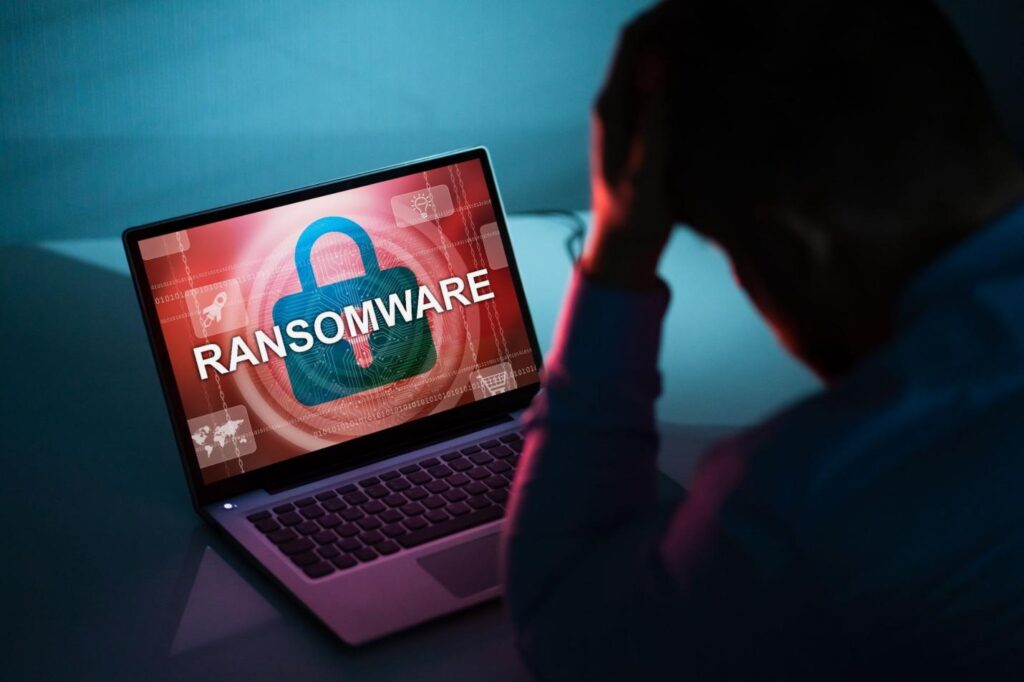
If you keep up at all with trends in IT privacy and security, you’re probably already familiar with ransomware. This specific type of malicious software has unfortunately impacted millions of individuals, small businesses, large corporations, and even state and federal government agencies around the country.
In this article, we’ll explain what ransomware is and how it works. We’ll also give you some useful tips for preventing ransomware from invading your home computer.
What Is Ransomware?
Ransomware is a specific type of “malware” or malicious software that holds your data or system access for ransom until you pay a certain sum of money to the hacker. It is different from traditional malware, which usually attacks software and/or hardware by manipulating it in some way so that it secretly funnels secure information to the hacker. For example, you may have malware running on your computer right now that is sending your personal information back to a hacker located somewhere on the other side of the world. You don’t know this is going on, and that’s the way they want to keep it.
Ransomware, on the other hand, is more out in the open. You’ll know instantly when ransomware has a hold of your data or network. Most often, you’ll receive a message that says as much. For example, the message might say something like, “Your files have been locked. If you want to unlock them, call this phone number.” In this case, you would be prevented from accessing your computer files as you normally would. That’s because ransomware locks, scrambles, or in some way holds your data or computer access for ransom.
In most cases, the individual in this unfortunate scenario would have no choice but to call the number or otherwise contact the hacker. This entity would then demand a sum of money in exchange for regaining access to the files or software. The ransom sum may be a few hundred dollars, but sometimes, it can be up to hundreds of thousands of dollars.
Ransomware attacks occur daily all over the world. While the most targeted entities are usually businesses and government agencies (especially those with loose security infrastructures), individuals can be targeted too.
Can You Prevent Ransomware?
Unfortunately, the answer to this question is both yes and no.
Officially, there are actually many steps you can take to stop a ransomware attack in its tracks or prevent it altogether. And you should definitely take these steps. Not addressing your devices’ security status and ignoring red flags that may lead to an attack in the future is foolish.
At the same time, it’s also important to remember how crafty hackers are. They are highly skilled at finding vulnerabilities in even the most high-tech and advanced security infrastructures. After all, state and local governments — who, ostensibly, have the best security available — have been successfully attacked by ransomware. The same goes for huge corporations with unlimited funds to throw at their security.
So, it stands to reason that individuals are often sitting ducks.
Again, though, there’s no reason to toss in the towel before even trying to improve your personal IT security and prevent a ransomware attack. Here are some tips you can use to ideally deter or prevent such an attack:
Invest in ransomware removal and protection software.
Before it’s too late, purchase ransomware removal and protection software. Professional security software can prevent ransomware attacks altogether or at least alert you to attack attempts before they are able to encrypt your data. In some cases, the software can even help you recover without having to pay a ransom.
Educate your family members about common ransomware threats.
In many cases, ransomware first enters your devices through a simple spam email. The email may look like it’s coming from the recipient’s bank or a friend, for example. It might ask the recipient to log in to their bank account and double check a transaction or change a password for their own protection.
This is, of course, a lie, and unfortunately, if the recipient clicks the login link provided, it can open a door for ransomware to embed itself into your entire email system and network.
To prevent a scenario like this, explain to your family members what to be on the lookout for in terms of spam emails and phishing threats. Emails that look legitimate but are a little “phishy” should be left alone.
Hire someone to be in charge of your IT security.
Often, IT companies can provide the same level of security to you and your family as they do to bigger companies. It doesn’t really matter who your IT company is as long as they are reputable and experienced and will be on the lookout for malware. They should also be up-to-date on what sorts of attacks are currently popular. Unfortunately, threats are constantly changing.
Don’t let your home computer be vulnerable to ransomware attacks. Use the tips provided in this article to secure your family’s personal devices and stay safe from ransomware.